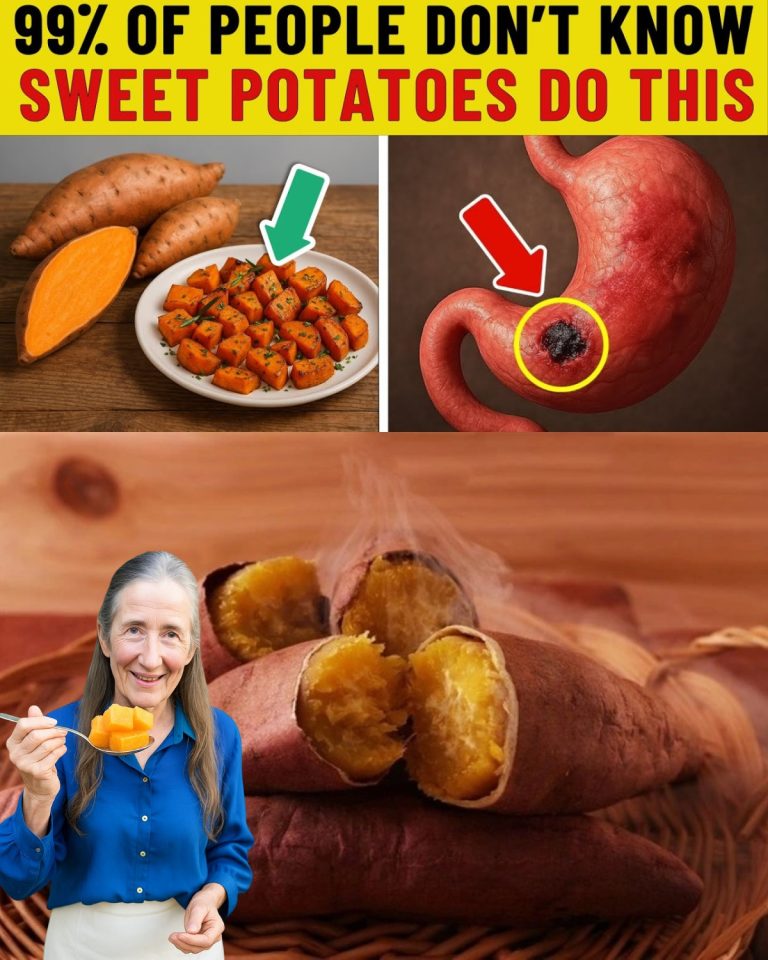ADVERTISEMENT
Preheat Oven: Set your oven to 400°F (200°C).
Prepare Sweet Potatoes: Wash and scrub the sweet potatoes thoroughly. Peel if preferred, though keeping the skin adds fiber and nutrients.
Slice: Cut the sweet potatoes into 1/2-inch thick rounds or cubes for even cooking.
Season: In a large bowl, toss the sweet potato pieces with olive oil, cinnamon, salt, and pepper. Ensure every piece is lightly coated.
Bake: Spread the sweet potatoes in a single layer on a baking sheet lined with parchment paper to prevent sticking.
Roast: Bake for 25-30 minutes, turning halfway through, until tender and lightly caramelized on the edges.
Serve: Garnish with your choice of parsley, chia seeds, or a small dollop of Greek yogurt for extra protein.
Serving and Storage Tips:
Serving: Sweet potatoes are best enjoyed warm, paired with lean proteins or leafy greens for a balanced meal.
Storage: Store leftover sweet potatoes in an airtight container in the refrigerator for up to 4 days. Reheat gently in the oven or microwave.
Freezing: You can freeze cooked sweet potatoes in freezer-safe bags for up to 3 months. Thaw overnight in the fridge before reheating.
Variations:
Savory Twist: Add minced garlic and smoked paprika instead of cinnamon for a savory side dish.
Sweet and Nutty: Drizzle with a teaspoon of honey and sprinkle with chopped walnuts before serving.
Spicy Kick: Toss with chili powder and a squeeze of lime for a zesty flavor boost.
Mash It Up: After roasting, mash with a splash of almond milk and a pinch of nutmeg for a creamy texture.
FAQ:
Q: Are sweet potatoes good for seniors with diabetes?
A: Yes, sweet potatoes have a lower glycemic index than regular potatoes, which means they cause a slower, steadier rise in blood sugar. Pairing them with healthy fats and protein helps further regulate blood sugar levels.
Q: Should I peel sweet potatoes before cooking?
A: Peeling is optional. The skin contains additional fiber and nutrients, which benefit digestion and overall health. Just be sure to wash them well.
Q: What’s the healthiest way to cook sweet potatoes?
A: Baking or roasting with minimal added fats preserves most nutrients. Avoid deep-frying or boiling, which can reduce vitamin content.
Q: Can sweet potatoes help with digestion?
A: Yes, their high fiber content supports gut health and regularity, which is important for seniors.
If you’re looking for a tasty, nutrient-packed way to add more sweetness and health to your diet, this simple roasted sweet potato recipe is perfect. It’s easy to prepare, delicious, and tailored to meet the nutritional needs of seniors — your body will thank you!
Would you like me to add a printable recipe card or tips on pairing this with other senior-friendly meals?
ADVERTISEMENT
